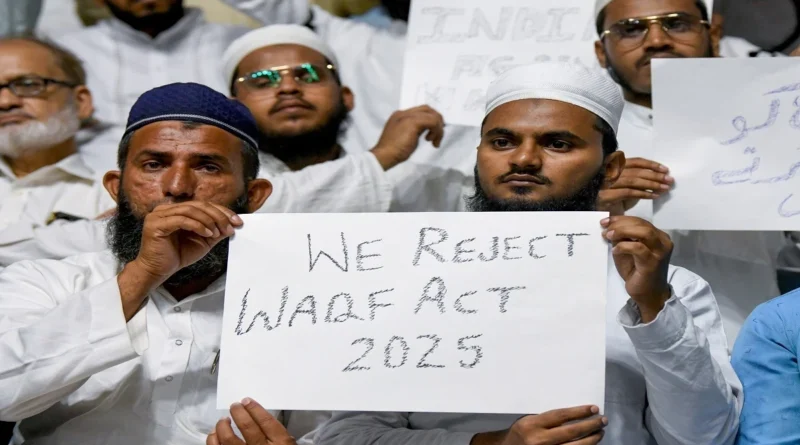Supreme Court Reserves Interim Order on Waqf Act Amidst Major Debate
The Supreme Court on Thursday reserved its interim order on three major issues after concluding a three-day marathon hearing. The bench, led by Chief Justice of India (CJI) B.R. Gavai and Justice A.G. Masih, heard extensive arguments from all sides.
The central government strongly defended the provisions of the law, arguing that Wakf is inherently a “secular concept” and therefore should not be restricted. Referring to the “presumption of constitutionality,” Solicitor General Tushar Mehta told the bench that the provision preventing Scheduled Caste and Scheduled Tribe Muslims from dedicating property as Wakf was a protective measure.
He explained that without such safeguards, anyone could assume the role of mutawalli (manager of Wakf property) and potentially misuse Wakf assets for personal gain. The Solicitor General also noted that several tribal organizations have filed petitions supporting the 2025 Act.
On the other hand, senior advocate Kapil Sibal argued in favor of an interim stay on the law, stating that the 2025 Act enables the acquisition of Wakf properties through non-judicial means. Senior advocate Huzefa Ahmadi also opposed the government’s stance.
Ahmadi contended that Section 3E of the Act strips Muslim tribals of their right to dedicate property as Wakf. He rejected the government’s claim that Section 3E aims to protect tribal land from isolation. Instead, he argued, it isolates Muslim tribals by restricting their right to create Wakf.
He further questioned the government’s argument, saying that if tribal Muslims are allowed to create trusts, then how can denying them the right to dedicate property to Waqf be justified?
Read Hindi National News at Prabhasakshi

